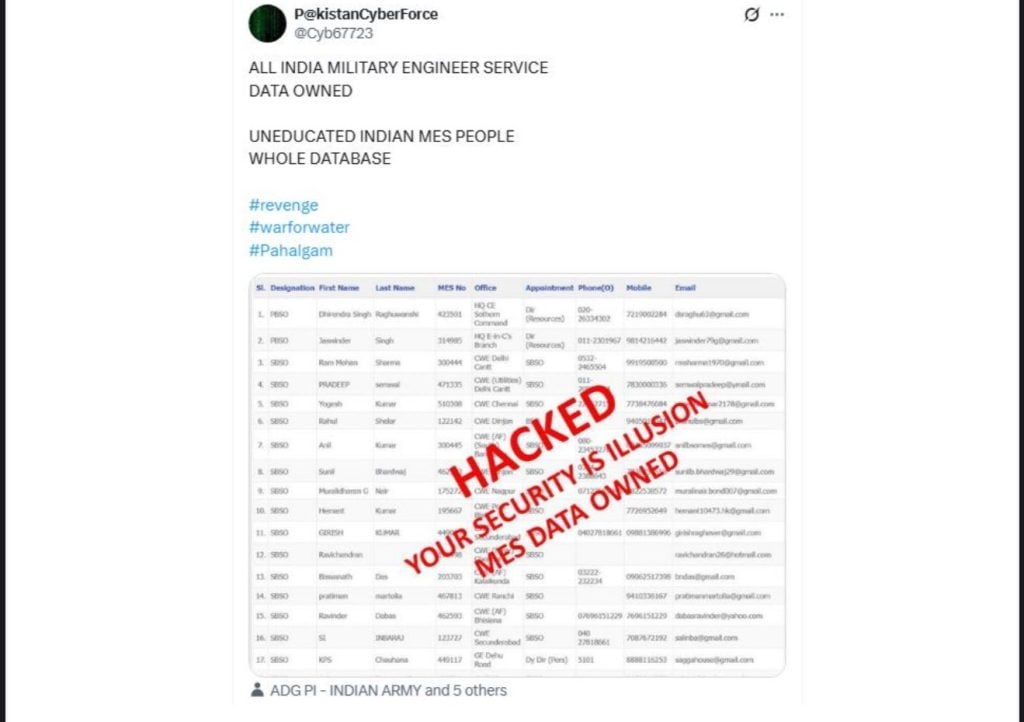In a major escalation of hybrid warfare in South Asia, state-backed hackers from Pakistan—reportedly supported by Chinese intelligence—have launched a highly sophisticated cyberattack on two critical Indian defense institutions: the Military Engineering Services (MES) and the Manohar Parrikar Institute for Defence Studies and Analyses (MP-IDSA). The breach, reported on May 5, 2025, has triggered alarm across India’s strategic and defense communities, underlining the growing digital threats facing the nation’s military infrastructure.
According to official and intelligence sources, the attackers gained unauthorized access to classified networks, potentially exposing sensitive data related to military engineering projects and defense research. The MES plays a crucial role in building infrastructure for the Indian armed forces, while the MP-IDSA is a premier defense think tank influencing key policy decisions. The compromise of such institutions underscores vulnerabilities in India’s cybersecurity framework despite ongoing modernization efforts.

This incident fits into a broader and increasingly aggressive pattern of cyber warfare involving India, Pakistan, and China. A 2023 study published on ResearchGate detailed the intensifying digital conflict in the region, noting that Pakistan has significantly enhanced its cyber warfare capabilities, often leveraging Chinese support to offset India’s technological edge and regional dominance.
India has been working to strengthen its cyber defenses. The Indian Army, in 2021, established a quantum computing lab at the Military College of Telecommunication Engineering in Mhow, Madhya Pradesh, to advance work in quantum cryptography. Cybersecurity labs and a cutting-edge cyber range have also been set up to train personnel in countering cyber threats. Yet, the latest breach highlights lingering gaps and the sophistication of the threats India faces.
The confirmed involvement of Chinese intelligence in aiding Pakistani cyber operatives marks a disturbing trend. Past reports, including a 2016 exposé by India Today, have documented repeated cyberattacks on Indian military networks by China- and Pakistan-based groups. In response, India had formed specialized cyber units under Military Intelligence, though their effectiveness has come under renewed scrutiny following this breach.

The attack has prompted strong reactions from defense experts and policymakers, many of whom are calling for a more aggressive cybersecurity strategy and clearer frameworks to define and deter cyberwarfare. Some analysts have suggested that attacks of this nature, given their strategic implications, should be treated as acts of war.
While the MP-IDSA is denying the news, it could just be another propaganda by Pakistan.
Parallels are being drawn to the 2022 Russian cyberattack on Ukrainian military routers, which severely disrupted battlefield communications. As global cyber warfare continues to evolve, the Indian defense establishment is facing a stark realization: securing the nation’s digital borders is now as critical as securing its physical frontiers.













